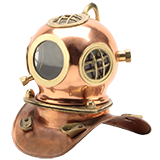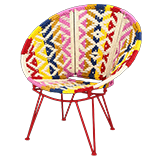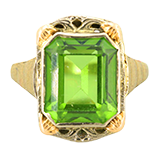Seller Story: Larry Balas, Dayton, OH
Larry Balas lived courageously and compassionately for all of his 94 years. Born in Cibakháza, Hungary in 1924, he moved with his Jewish family to Budapest, where they came under the forces of fascism and eventually, WWII. “Larry was in a labor camp by 1943,” says his stepson Gary Opper. “He did many jobs and was forced on long marches, in the cold, in the rain, it didn’t matter. At one point, he and his group were made to cut down trees in a forest, pull out the stumps with their hands, and then march up and down the field to flatten it out. They were then made to build a runway and forced to hang bombs from the wings of German planes dropping bombs on the Allies. They managed to disarm about half of the bombs before the planes took off. They knew if they were caught they would be fogged.”
Larry was later marched again, in the snow, through nearly the full length of Austria, to the Mauthausen Concentration Camp. “Larry had taken his grandfather’s gold watch and would hide it in the piece of bread he received every day," says Gary. "When they arrived at Mauthausen, the guards pulled out their rifles and said run. So they did, and the guards used them as target practice. As he was running, he was holding his knapsack with both hands with his knuckles right at his shoulders, and one of the bullets entered his left hand on the knuckles and hit the buckle right by his heart and deflected. There was a Jewish doctor at Mauthausen who helped him bandage it, and that basically saved his life. When he contracted typhus, he used his grandfather’s watch to bribe the guard for medicine.”
Liberated by the Americans in May of 1945, Larry returned to Soviet-controlled Budapest to find his father and older brother deceased. At 25, he resumed life with his younger brother and mother, initially going to work for the Jewish Federation of Hungary, where he was made to go into people’s homes at night and ensure they didn’t have forbidden items. “You have to understand the terror that these people lived under in Budapest after the Soviets came in,” says Gary. “It was worse than the Nazis.”
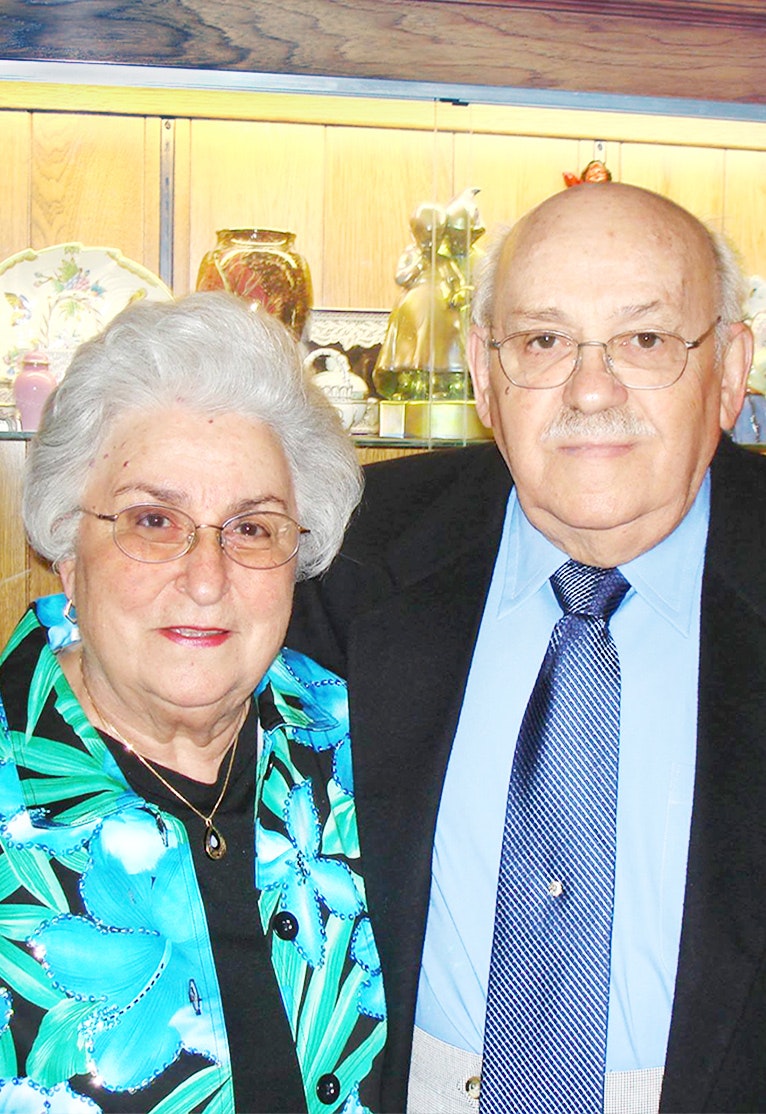

19th-Century Majolica Pitcher with Cobalt Glaze

Holmes & Edwards "Danish Princess" Silver Plate Flatware in Chest

Four Italian Glass Mosaic Jewelry Pieces

Herend Porcelain Figurine Woman on a Goat Breastfeeding

Herend Porcelain Guinea Fowl Figurine with Fishnet Rust

Italian Glass Mosaic Link Bracelet

Weller Pottery Art Nouveau Candlesticks

19th-Century Fischer J. Hand Painted Ceramic Charger


19th-Century Zsolnay Reticulated Ceramic Vase

14K and 10K Yellow Gold Opal Ring

19th-Century Fischer J. Reticulated Ceramic Handled Centerpiece

10K Yellow Gold Thimble

Three Sterling Silver Pendant Necklaces

19th-Century Fischer J. Reticulated Centerpiece Bowl

S.C.S. Co. Sterling Silver Individual Salts

19th-Century Fischer J. Reticulated and Embossed Ewer

Late 19th Century Meissen Two Handled Bowl

Vintage German 800 Silver Fish Forks, Set of Six

19th-Century Fischer J. Highly Reticulated Vase

Herend Hand Painted "Rothschild Bird" Demitasse Cups

19th-Century Fischer J. Reticulated Ceramic Figural Console Bowl

Hollohaza Porcelain Crane Figurine with Fishnet Black

Schuman Bavarian Porcelain "Empress Dresden Flowers" Tea Cups

Herend Porcelain 150th Anniversary Figurine Woman with a Mirror

Herend Porcelain Figural Group of a Man and Horse

10K Yellow Gold Shell Cameo Pendant Brooch

19th-Century Fischer J. Reticulated Ceramic Ewer

Rare Herend Porcelain "Wedding Party" Porcelain Figurines

Herend Porcelain Pelican Figurine with Fishnet Rust

19th-Century Fischer J. Reticulated Ceramic Floral Vase

Wallace Weighted Sterling Silver Compote

Italian Glass Mosaic Jewelry

Zsolnay Ceramic Pitcher Designed by Lajos Mack

Five Sterling Silver Serving Utensils Featuring Gorham

Herend Hummingbird Porcelain Figurine

Herend Porcelain Figurine Of A Man With Hat

James Kent "Easter Glory" Porcelain Pitcher and Bowl

Two Antique Czechoslovakian Cologne Bottle Attributed to Moser

1930s English Silver Plate Knife Rests in Presentation Box

Henriot Quimper Faience Fish Console Bowl

19th-Century Fischer J. Reticulated Ceramic Centerpiece Bowl

Small Walnut Shaped Sewing Kit

19th-Century Fischer J. Hand Painted Ceramic Jug

Assortment of Vintage Sterling Silver Spoons Featuring Whiting

Barbour Silver Co. Silver Plate Coffee Pot

Henroit Quimper Faience Serving Platter

19th-Century Majolica Triangle Form Pitcher

Herend Porcelain Figurine Of A Man In Ethnic Outfit

Herend Porcelain Figurine Of Hussar With Dragon

Rindskopf Nouveau Art Glass Vase

Four Italian Glass Mosaic Brooches

19th-Century Fischer J. Reticulated and Embossed Ewer

Herend Round Green Covered Box

Three 19th-Century Majolica Plates

19th-Century Zsolnay Ceramic Moon Vase

Herend Porcelain Lattice Bowl
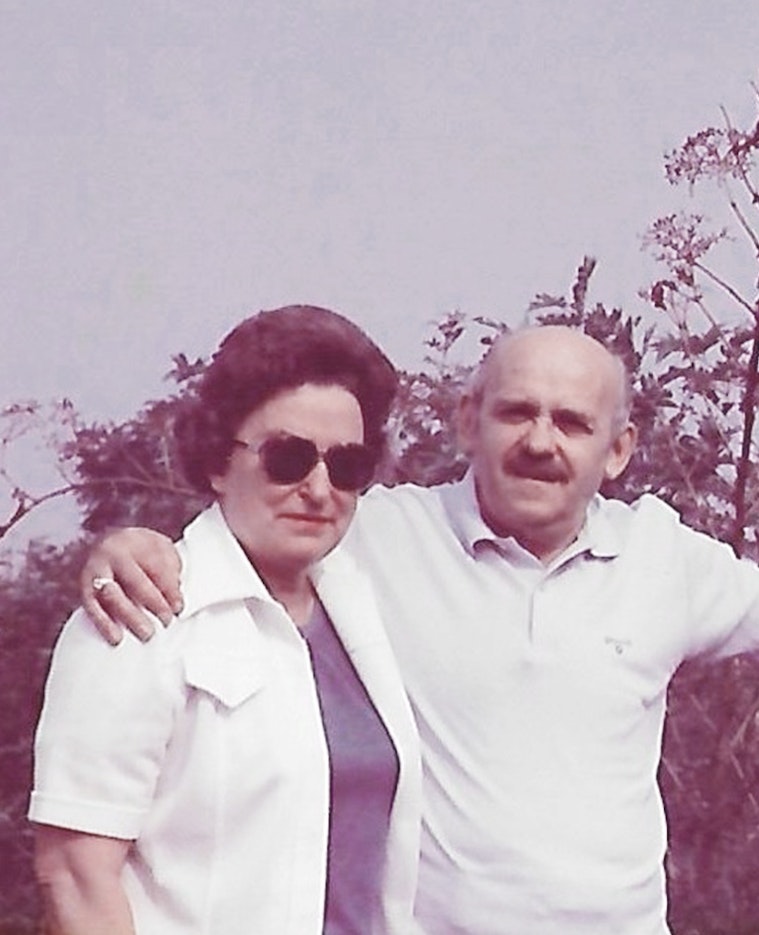
When the Hungarian Revolution began in 1956, Larry’s mother urged him to leave the country. He reluctantly escaped, bribing the guards at the Austrian border with cigarettes his brother gave him. Once safely in Austria, he opted to be relocated to America “He said, ‘The Americans freed me, I want to give back,’” says Gary. Larry eventually landed in Dayton, OH, where he got his first job. “He was plucking feathers off of chickens,” says Gary. “And learning English from three black women from the south who had the same job. Because of it, Larry always had a little bit of a southern accent.” Set up on a blind date with a Sydelle, Gary’s mother, the two married in 1970 when Larry was 49.
Together Larry and Sydelle started Sylar Antiques, a business built largely around Hungarian porcelain they would hand carry from visits home. “I love that expression you can take the man out of a country, but you can never take the country out of a man,” says Sydelle. “He was dedicated to the U.S., but deep in his heart he was still a Hungarian.” Larry loved Zsolnay, Herend, and Fischer porcelain pieces that evoked his country, sometimes visiting the factories to handpick them himself. He was, by all accounts, motivated by kindness. “He had every reason to be bitter and to hate, but didn’t hate anyone he didn’t judge anyone," Gary says. "Anyone he met he called his friend — that was the kind of man he was.”
The couple collected to make their clients happy. “They want these pieces to find loving homes where people appreciate them," Gary says. “To teach people to talk about history and get people interested in Hungary and what all went on there. How one first generation American and one immigrant — you know my mother’s parents didn’t speak English before they got here, and Larry didn’t — lived the American dream.”
